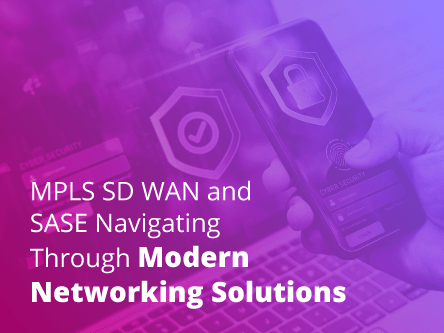As enterprises embrace Software-Defined Wide Area Networks (SD WAN) and cloud-first strategies, the role of traditional networking technologies like MPLS IP VPN is often overlooked. While fibre-based broadband and direct cloud connectivity are growing in adoption, MPLS IP VPN remains a critical component in ensuring a stable and secure underlay for SD WAN. It also plays a key role in efficient inter-cloud routing, making it indispensable for global networks.
IP VPN as a Reliable SD WAN Underlay
SD WAN enhances network agility, automation, and cost efficiency by leveraging multiple transport options, including broadband, LTE, and MPLS. However, MPLS IP VPN remains the preferred underlay for mission-critical applications in multinational networks due to several key advantages:
- Guaranteed Quality of Service (QoS): MPLS IP VPN ensures predictable performance with service-level agreements (SLAs), while public Internet connections operate on a best-effort basis.
- Low Latency and Minimal Packet Loss: This is crucial for multinational enterprises, where latency can be a challenge. While Internet circuits can be cost-effective, they often lack the reliability required for real-time applications such as VoIP, video conferencing, ERP, and large file transfers.
- End-to-End Security: MPLS IP VPNs provide a private, carrier-managed network, significantly reducing exposure to security threats compared to public Internet-based solutions.
- Lower Cloud Egress Charges: When cloud applications need to communicate with on-premises services or users, private cloud connections incur significantly lower egress fees compared to public Internet-based solutions.
Enhancing Inter-Cloud Routing with MPLS IP VPN
As enterprises increasingly operate in multi-cloud environments, seamless and secure inter-cloud connectivity is essential. MPLS-based IP VPN supports this by providing:
- Consistent Performance Between Cloud Providers: Avoiding the unpredictability of Internet peering points.
- Optimised Traffic Engineering: Quality of Service (QoS) ensures predictable latency and minimal packet loss between cloud workloads.
- Secure and Private Interconnects: Helping enterprises meet compliance requirements for data governance and regulatory standards.
- Cost Efficiency: Internet-based inter-cloud connections are often more expensive due to high cloud egress traffic fees, making private MPLS routing a more cost-effective solution.
Final Thoughts
While SD WAN provides flexibility, automation, and potential cost savings, MPLS IP VPN remains a crucial element for high-performance networking and secure inter-cloud routing. Enterprises looking to balance agility with stability should consider a hybrid approach that integrates SD WAN overlays with MPLS IP VPN and Internet underlays. This strategy is especially vital for multinational organisations, ensuring optimal network performance, cost control, and security. By leveraging MPLS IP VPN for inter-cloud routing, businesses can achieve better performance and lower costs compared to relying on public Internet connectivity.
Get in touch with us to learn how our IP VPN solutions can enhance your network performance and security.







